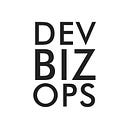Member-only story
Measuring for Impact
Measure what matters, not what is convenient or comfortable
When money is at stake, people will go to great lengths to get their share. There is nothing nefarious in that desire. We all want our fair compensation for our work, and we all want a fair price for the goods we buy. What happens though when a seemingly positive goals creates the seeds for less desirable behaviors?
In order to promote greater cross-sell of their banking products, one bank promoted the mantra “8 is Great”. This meant that every one of their customers should have eight accounts with the bank. While the mantra had a nice ring to it, realizing this goal was much harder. This sales goals were brutal, leading some managers and sales reps to open up fake accounts for customers just to meet ever higher goals.
These misdeeds eventually caught up to Well Fargo, one of the largest US banks. The scandal decimated customer trust, resulted in significant fines, and led to a massive restructuring. Metrics are only useful if you are measuring the right things.
The ability to measure what you do helps you understand where and how to improve. Without that understanding, decision-making is based more on whim than reality. The subtle point here is knowing what to measure so that your “where to improve” results in affecting meaningful outcomes and avoiding an uncomfortable hearing before a Congressional committees.
We often lose sight of this idea of measuring for impact rather than activity or vanity. This leads to situations where we measure lines of code or bugs per release instead of more valuable metrics such as customer engagement or satisfaction. The former leads to people gaming the system. The later gives us a much better lens into business results.

I have a book coming out next week on the topic of building and scaling communities called “Community-in-a-Box”. I wanted to share my own story about measuring the wrong things in my journey to build a global community and share an excerpt from the book along the way.
The story begins with a fundamental truth, something I only came to understand much later once the community was rapidly scaling:
Having a large number of members is not the…
